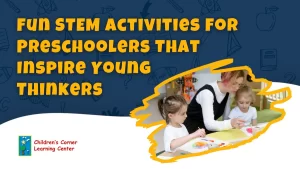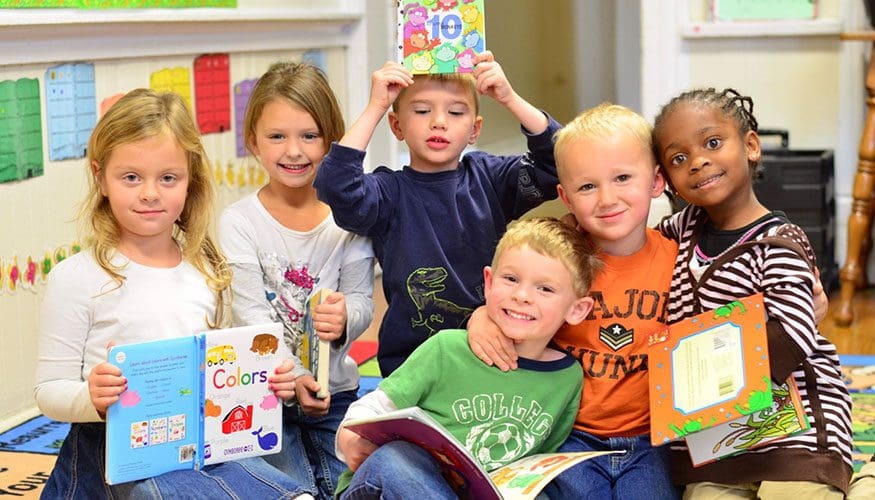Most may wonder why play is important in child development. Learning through playing helps children explore new ideas. It also helps them discover their interests and remarkable abilities, and develop social skills.
In addition, it provides a safe space for young minds to make mistakes and take risks without fear of consequences. It may often be described as “children’s work”, but playtime is crucial to every aspect of a child’s development and learning.
There are many different types of play, but all of them are important in helping children learn and grow. From pretend playing to physical playtime, each type has its unique benefits. Let’s discuss some of the different types of play and why play is important for children.
Different types of play
Pretend play
Pretend playing, also known as imaginative or creative playing. It is when children use their imaginations to create and inhabit imaginary worlds. Children can experiment with different roles through pretend play.
They also try out new ideas and solve problems. This type of playing is essential for developing social skills. It allows children to practice cooperation, communication, and negotiation. Knowing the role of pretend play helps us why play is important.
Physical play
Physical playing is any play that involves physical activity. This could be anything from playing tag to climbing trees. Physical playtime is essential for developing gross and fine motor skills. It also helps improve, balance, and coordination. It’s also an excellent way for children to release energy and have fun!
Constructive play
Constructive play is sometimes called creative play. It is when children use materials such as blocks or clay to build something. This play allows children to be creative, experiment with new ideas, and practice problem-solving.
Exploratory play
Exploratory playing is when children use their senses to explore their environment. This could involve anything from touching different textures to tasting new foods. Exploratory play is important for developing sensory awareness. It helps kids understand the world around them.
These are just a few examples of the different types of play that are important for child development. All types of play offer unique benefits that help children learn, grow, and thrive.
Here’s a closer look at why play is important and how it benefits children of all ages.
Why Play is Important in Child Development
1. Play helps children develop essential skills
Playtime is an essential and invaluable part of a child’s development. It helps them to acquire and hone important physical, social, and intellectual skills. Children can improve their coordination, balance, strength, and flexibility through play.
They also build social connections through activities like group games or collaborative projects. They also develop cognitive abilities by working through various pretend play scenarios.
Furthermore, playing is an excellent source of creativity and imagination. It allows children to explore themselves and the world around them in new and exciting ways. It provides the venue for kids to develop the skills that they need for success in school and in all areas of life.
2. Play supports physical development
Playing is vital for kids’ healthy physical development. Crawling, jumping, running, or climbing, moving, and engaging with their surroundings fosters coordination, strength, and balance. Different types of movement also help improve different muscle groups. It enhances flexibility and endurance.
In addition, physical play helps children develop a sense of body awareness and control. They learn how their bodies work and how to move in different ways. Kids also discover what they are capable of physically, which can build confidence and self-esteem. Physical development is one of the critical reasons why play is important.
3. Play aids in cognitive development
Cognitive development encompasses a wide range of skills. It includes attention, memory, problem-solving, and critical thinking. All of these abilities are important for success in school and life. Fortunately, play is an excellent way for children to develop these skills.
For example, pretend play allows children to experiment with different roles and explore various scenarios. This play helps them practice decision-making, problem-solving, and critical thinking. Memory games and puzzles are also great for developing cognitive skills like attention and memory. Playing these types of games teaches children to focus and remember information.
Research has also shown why play is important and that active play can help improve brain function. One study found that, after just one hour of physical activity children performed better on tests of attention and memory than those who didn’t engage in any physical activity.
4. Playtime supports language development
Language development is another reason why play is important. It is a essential aspect of cognitive development. Play provides the perfect opportunity for kids to practice using and understanding words. They learn about different sounds, words, and meaning through songs, rhymes, and stories. They also can try out new words in various contexts and learn how to use them properly.
In addition, playtime helps children develop communication skills. They learn how to express themselves and listen to others. As they interact with others during play, they also learn the importance of taking turns and following rules.
5. Playing fosters social and emotional development
Social and emotional development is another crucial aspect of child development. Children learn how to relate to others and understand their emotions through play. They practice sharing, taking turns, and cooperating with others. This type of playing also helps children develop empathy. It helps kids see things from another person’s perspective. And that’s why play is important.
In addition, playing gives children the opportunity to work through different emotions. When they feel sad, angry, or frustrated, pretend play can be an excellent outlet for them. It lets them express these emotions in a safe and controlled environment.
6. Playtime can be used to improve behaviour
In addition to the other benefits of play, it can also be used to improve behavior. Children who engage in positive play activities are less likely to engage in negative behaviors. Play can be used as a reward for good behavior or to redirect children who behave inappropriately.
For example, if a child is acting out, you could suggest that they use their energy to build a block tower or draw a picture. This will help them burn off some excess energy while redirecting their attention to something more positive. Social behaviour improvement is another reason why play is important.
To conclude
Play is undeniably a critical facet of child development. So, the next time your little one wants to spend an hour building Lego towers or acting out a scene from their favorite movie, don’t stop them! Instead of wondering why play is important, encourage their imagination and creativity—it’s good for them!
If you’re looking for reliable, quality child care, you’ve found the right place! At Children’s Corner, we believe our responsibility is to protect a child’s health, safety, and well-being. Our centers provide a nurturing and loving environment to guide each child’s success. You can trust us to provide your child with the best care and education.
FAQs
1. What are the benefits of play for child development?
The benefits of play for child development are numerous. It improves cognitive skills, language development, and social skills. It also helps with emotional regulation, creativity, and physical development. Play also helps children build confidence, learn to take risks, and develop a sense of independence.
2. What types of play are important for child development?
All types of play are important for child development. For example, free play, imaginative play, physical play, and structured play. Children benefit from a variety of play experiences, as each type of play helps develop different skills and abilities.
3. How much time should children spend playing each day?
The amount of time children should spend playing each day varies depending on age and individual needs. Generally, preschool-aged children should have at least one hour of unstructured playtime each day. School-aged children should have at least 30 minutes of unstructured playtime.
4. What can parents do to encourage play?
Parents can encourage play by providing a safe and stimulating environment for their children. Parents can offer age-appropriate toys and materials. They can also model play behaviors by engaging in play with their children. Parents should also provide opportunities for children to play with other children in a variety of settings.
5. How can play be incorporated into learning?
Play can be incorporated into learning by using games and other playful activities to teach academic and other skills. It can include using educational toys, and creating fun and engaging lesson plans.
We can also encourage children to explore and experiment in a hands-on way. Playful learning can help children stay engaged and motivated. It can make learning more enjoyable and effective.









